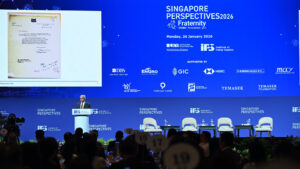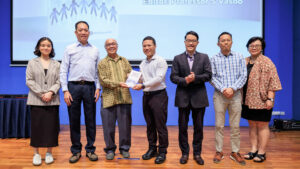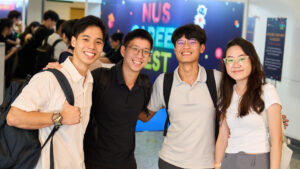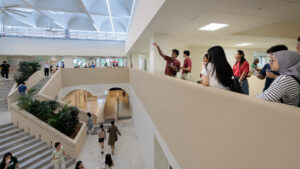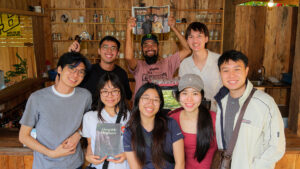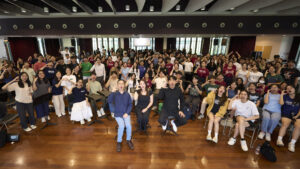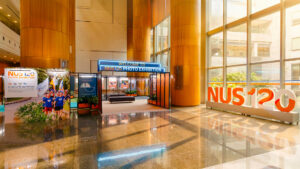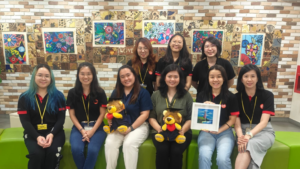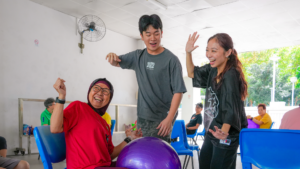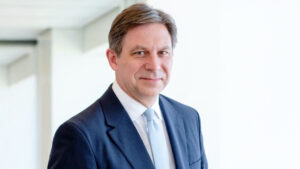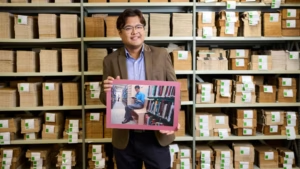
People of FASS
People of FASS is a content series that emphasises on the human element, our people, their accomplishments and journey, as well as what inspires them. The series is curated primarily to focus on featuring exemplary students, alumni, researchers, faculty and staff.
Mindset shifts for a kinder, happier Singapore
Discussions at the Singapore Perspectives conference organised by the Institute of Policy Studies at NUS in January 2026 centred on the theme of Fraternity and explored ways to help Singaporeans connect with one another, even as technological disruption, cultural differences and competition pose a constant threat to unity.
New book by NUS Social Work’s Dr S Vasoo offers insights on delivering efficient and impactful social services
A new book edited by social service pioneer and NUS Social Work Emeritus Professor Dr S Vasoo that highlights the role of professional social work in strengthening the delivery of cost-efficient, accountable and impactful social services was launched on 11 February 2026.
From Gen Z to Gen AI: NUS Career Fest 2026 prepares students for the future of work
The first of this year’s two career fairs brings together over 300 employers from diverse sectors, including technology, finance, healthcare and many more.
NUS Arts Festival 2026 brings the arts to the epicentre of student life
For a second year, the NUS Arts Festival will explore the theme Crossroads, delving deeper into encounters, intersections, and turning points that shape our existence. This vision unfolds over 71 days through 28 programmes led by 33 student groups, making it the University’s largest arts event.
Learning to walk like an elephant Reflections on an NUS College Impact Experience project
An elephant caretaker’s advice guided a group of NUS College students in their quest to create impact for a Thai community, reminding them to embrace humility and curiosity in their approach.
Arts for All enriches arts community within and beyond NUS
Two years after it was piloted in late 2023, the Arts for All (AFA) initiative is making waves in NUS, enabling students to embed the arts into their student life and learning journey – and beyond, through outreach efforts to younger musicians across Singapore.
Portraits of NUS life: Stories behind the NUS120 Photo Exhibition
A visual showcase of 46 images curated from photos submitted by the NUS community, the NUS120 Photo Exhibition captures diverse portraits of campus life ranging from moments of human connection and scientific discovery to campus architecture and its rich flora and fauna.
NUS Cares: From campus to community, making a world of difference
NUS students and staff give back to the community in various ways
.
NUS students bridge generations through dance and dialogue
Innovative courses empower students to connect with older adults, fostering well-being and building vibrant communities through hands-on projects.
NUS: Reprogrammed for Tomorrow
In just three years since the launch of ChatGPT, NUS has launched ambitious programmes to nurture AI-fluent students and use AI effectively in teaching, research and corporate functions.
Eminent Macroeconomist Professor Alan M. Taylor Appointed MAS Distinguished Term Professor at NUS
Professor Alan Taylor will deliver a public lecture at NUS on 14 January as part of his appointment as the latest MAS Distinguished Term Professor.
ALUMNI STORIES | Keeping NUS’ Heritage Alive
Associate University Librarian and Head of Archives & Digital Preservation Mr Herman Felani bin Md Yunos (NUS Political Science ’07) shares how he is helping to safeguard the University’s rich history — and why working at his alma mater is both a privilege and a passion.
